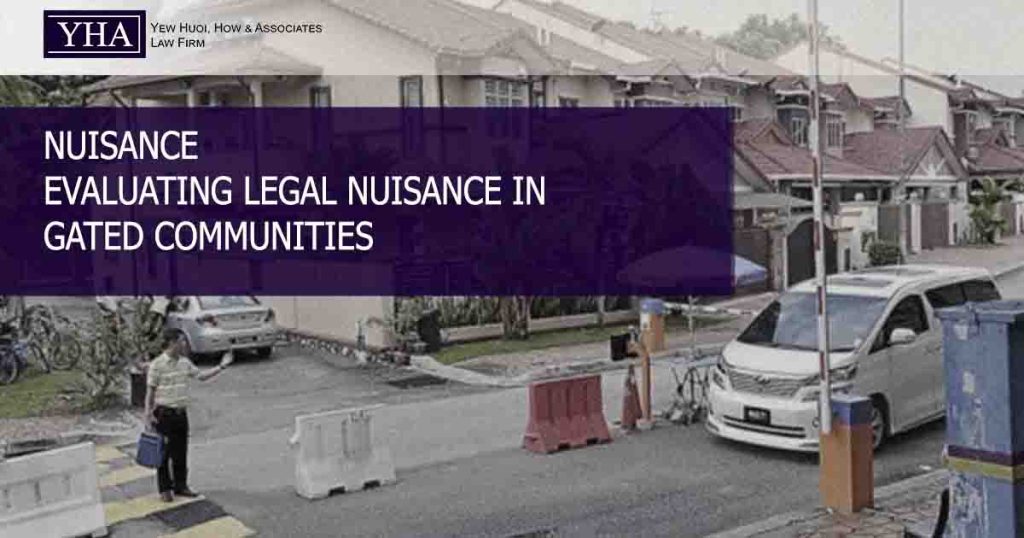ILLUSTRATIVE SCENARIO
X, a homeowner in a gated community, is required along with other residents to pay a monthly fee of RM250.00 to the Residents’ Association for security and maintenance. The community features a guard house and two boom gates as the sole access point. Residents have agreed that non-payment of the fee will result in loss of security services, including assistance from the guards in operating the gates. After ceasing payment, X found himself needing to manually operate the boom gates.
The legal question posed is whether the setup of the guard house and boom gates constitutes an actionable nuisance for X.
LEGAL PRINCIPLES & LAW
• Under common law, neither actionable obstruction nor actionable private nuisance applies to cases of mere inconvenience. • There must be a consideration of the community’s interest, which typically outweighs individual inconveniences, particularly in security measures. • Controlled access within a defined area, especially for security reasons, is legally permissible. A legal issue arises only when access to a public area is completely denied to all by a barricade.
APPLICATION TO THE SCENARIO
In X’s case, the inconvenience of manually operating the gate does not constitute a legal obstruction. Therefore, X does not have grounds for an actionable nuisance against the Residents’ Association due to the nature of the inconvenience being non-obstructive and the access control being for a legitimate security purpose.
REFERENCE CASES
• Au Kean Hoe v Persatuan Penduduk D’ Villa Equestrian [2015] MLJU 230: This case supports the position that operational inconveniences within managed communities do not typically rise to the level of legal nuisances. • George Philip & Ors v Subbammal & Ors AIR 1957 Tra-Co 281: This case underscores the legal distinction between minor inconveniences and significant obstructions or nuisances under common law.

